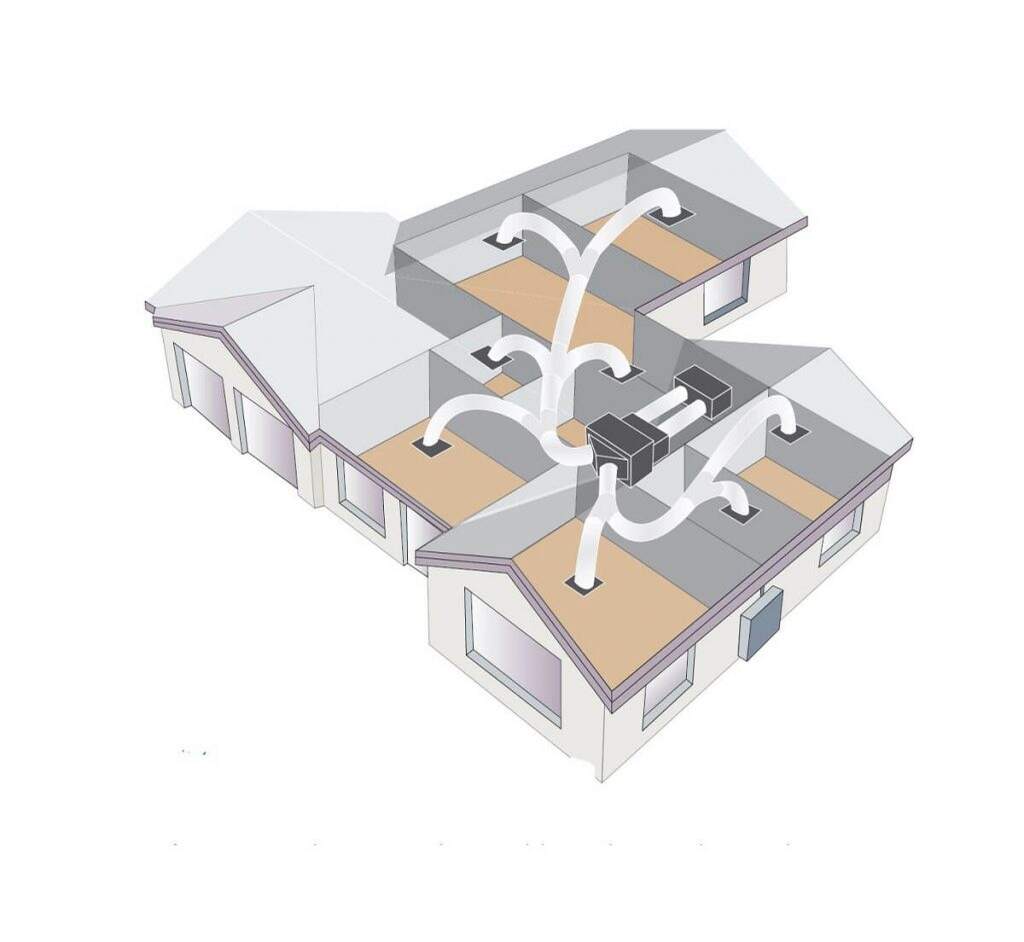When it comes to maintaining optimal indoor comfort, selecting the right size ducted air conditioner is crucial. Whether you’re outfitting a home or a commercial building, the system’s size affects not only your energy bills but also your comfort and the unit’s longevity.
Why Sizing Matters in Ducted Air Conditioning
A properly sized ducted air conditioner balances cooling efficiency with energy use. Here’s why size is critical:
Energy Efficiency: An oversized unit will frequently switch on and off, wasting energy. Conversely, an undersized system will struggle to maintain the desired temperature, running continuously and increasing energy costs.
Comfort: Incorrect sizing can lead to uneven temperatures, with some areas being too hot or too cold.
Longevity: Systems that are improperly sized tend to experience more wear and tear, leading to frequent repairs and shorter lifespans.
Understanding these impacts underscores the importance of making the right choice upfront.
Key Factors in Choosing the Right Size
Several variables determine the correct size ducted air conditioner for your space. Consider these elements carefully:
1. Room or Building Size
The size of the area to be cooled is the primary factor. Air conditioning capacity is measured in kilowatts (kW), with larger spaces requiring more power.
For small rooms (up to 20m²), a system with a capacity of 2-2.5 kW may suffice.
For large open spaces (40m² or more), a system with 6-7 kW or more may be required.
2. Insulation Quality
Well-insulated buildings retain cool air better, reducing the need for larger systems.
3. Climate Zone
Your geographic location affects cooling requirements. Homes in hot, humid climates typically need more powerful systems compared to those in temperate regions.
4. Ceiling Height
Higher ceilings increase the volume of air to cool, impacting the system size. A standard 2.4-meter ceiling will require less power than a vaulted or 3-meter ceiling.
5. Number of Occupants
More people generate more body heat, necessitating additional cooling power.
6. Window and Glass Area
Large windows or glass doors allow more heat transfer. Energy-efficient glazing can mitigate this effect.
7. Duct Design and Layout
The design of the ductwork plays a role in distributing air effectively. Poorly designed or leaking ducts can reduce efficiency, requiring a larger system.
Conducting a Heat Load Calculation
A heat load calculation evaluates all the factors affecting your cooling needs, including the size, insulation, and location of your space. While online calculators provide a rough estimate, it’s advisable to consult an HVAC professional for an accurate assessment. They will use tools and industry standards to ensure precision.
Choosing the Right System Capacity
Ducted air conditioners come in various capacities. Here’s a general guideline:
Small Homes: Typically require systems between 5-10 kW.
Medium-Sized Homes: Need systems around 12-16 kW.
Large Homes or Buildings: May require 18 kW or more, depending on other factors like insulation and layout.
Always err on the side of professional advice, as slight variations can significantly affect performance and efficiency.
Benefits of Proper Sizing
Selecting the right size ducted air conditioner offers numerous advantages:
Consistent Comfort: Even cooling throughout the space.
Energy Savings: Reduced electricity bills due to efficient operation.
Quiet Performance: Avoids the constant cycling or strain of an improperly sized system.
Long-Term Durability: Reduces wear and tear, extending the unit’s lifespan.
Common Mistakes to Avoid
Even with good intentions, consumers often make mistakes when choosing a ducted air conditioner:
1. Relying Solely on Unit Price: Cheaper systems may not meet your cooling needs, leading to higher operating costs.
2. Overestimating Power Needs: Bigger isn’t always better.
3. Ignoring Professional Advice: DIY sizing can lead to costly errors. Always consult an HVAC expert.
Partnering with Trusted HVAC Professionals
Choosing the correct size ducted air conditioner is not just about purchasing a unit—it’s about tailoring a solution to your specific needs. Partnering with a reputable HVAC provider ensures that you receive expert advice, quality installation, and ongoing maintenance.
When seeking a provider:
Look for companies that offer heat load calculations.
Ensure they provide a range of options for different budgets and requirements.
Verify their experience with ducted air conditioning systems.
Conclusion
Investing in the right size ducted air conditioner is essential for energy efficiency, comfort, and long-term satisfaction. By considering factors like room size, insulation, and professional advice, you can ensure your system meets your needs effectively. Remember, consulting with an HVAC professional will save you time, money, and potential headaches down the line.
Take the first step toward a cooler, more comfortable space—explore your options with a trusted provider today: tukar tambah ac.
With proper planning and expert guidance, your ducted air conditioning system will deliver optimal performance for years to come.
